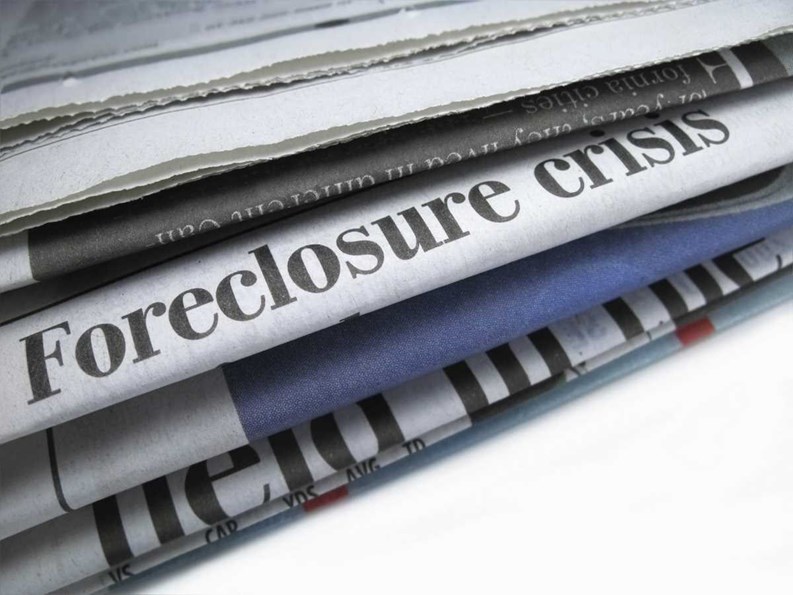The economy cratered—to use a term in popular parlance at that time—in September 2008, with the collapse of too-big-to-fail Lehman Brothers. While the measures undertaken by the federal government and the Federal Reserve averted complete financial meltdown—it never reached the point where we had to transport the necessary dollars to buy a loaf of bread in a wheelbarrow, as happened in Italy a few decades ago—the last few years have been a litany of ominous economic indicators.
Unemployment: in the double digits. Consumer confidence: an oxymoron. The Dow: mostly down. Property values: a fraction of what they were a few years ago. Foreclosures: way up. About the only positive are the interest rates, which hover near all-time lows. Mix in the mounting deficit, the Moody’s downgrade of U.S. T-bills in mid-2011, and a growing populist uprising centered around income inequality, and it’s not a boon time for much of anything to do with real estate in Chicago—or much of anywhere else.
Economists and real estate brokers alike seem convinced that 2012 will break no differently than 2011. When the good times return, they will do so slowly. How does the bleak economic outlook affect the property management industry, in the Chicagoland area and across the U.S.? Let’s take a look at the situation in various markets across the country.
Slow & Not So Steady
Like the rest of the economy, the property management industry remains sluggish.
“Our industry is not growing,” says Tara Miller, sales and marketing manager with First Choice Property Management, which is based in Florida. “The economy took a nosedive. New buildings stopped being built. We don’t have new communities to target. There are 500 communities in Palm Beach County, and 200 management companies vying for the same communities. It doesn’t mean we’re not taking on new clients, just not as many as I’d like.”
That ratio can be good for the properties, as we’ll explain shortly, but grim for the health of the industry. And the lack of new communities is only part of the problem—the extant ones are also hurting.
“We’re still seeing foreclosures,” says Lori Burger, senior vice president of both the Institute of Real Estate Management (IREM) and the Eugene Burger Management Corporation, which is based in California but operates offices throughout the country. While governments—state and federal—and some of the banks themselves, have worked to stem the flood of foreclosures, they still happen, and they don’t seem to be slowing down. “Foreclosures were higher in 2010 than the year before. I don’t see them changing in 2011 or 2012.”
According to RealtyTrac, a nationwide information service that tracks real estate foreclosure filings, Illinois is tenth in the country in number of foreclosure actions filed with 100,972 properties in some state of distress—(notice of default, lis pendens, auctioned, sold in foreclosure or foreclosed and owned by the bank).
In a recent article published in the Chicago Tribune, Bob Floss, president of the Chicago Association of Realtors (CAR) said that despite buyers snapping up foreclosed properties, homes in distress are still a drag on the market as a whole, but he notes, "Low interest rates and smart opportunities to buy make for favorable market conditions for both buyers and sellers looking to right-size their lifestyle."
Loretta Alonzo, president of the Illinois Association of Realtors told the Tribune that she believes a recovery is imminent. “Signs are emerging that a recovery in the housing market is underway including the steady uptick in home sales activity, which is expected to continue into the new year. As we move through the distressed properties, predominant in the Chicagoland market, and begin to see more positive reports on the jobs front we will be looking for some stabilization in home prices to coincide with the rising home sales," said Alonzo.
In markets with higher percentages of condos that are second homes, vacation homes, and investment properties, it's easier for owners to sever ties if all hope of breaking even is lost. “The problem here is, the value’s not there in the units,” Burger says. Owners who bought at the peak of the real estate boom now owe more—in some cases, much more—than what their unit is worth in 2012 dollars. They can’t sell them for enough to make back their initial investment, Burger says, so they simply walk away. Owners are more likely to stop putting money into the bad investment, just as they would, after a time, sell a stock at a loss. “It just doesn’t make sense to hold onto them.”
Devastating enough in a neighborhood of detached single-family dwellings with white picket fences out front, foreclosures impact HOAs even more. Unlike a dumped stock, this has an adverse impact on each of the other owners in the HOA. “When units go to foreclosure, those uncollected assessments have to come from somewhere,” Burger says. “They’re sitting on uncollected debt.”
Not every delinquent owner is an investor, however. All the owners work in the business world, and many businesses aren’t doing well, Burger says. “I know some very affluent people, individuals who have served on boards—they’ve lost their homes.”
Longtime anchor stores in some neighborhoods—supermarkets, Borders bookstores—have shuttered their doors. “Major retailers, well established commercial retailers, are going belly up,” Burger says. “It’s really frightening. The commercial retailers can’t refinance, so they go out of business.” This removes hundreds of jobs from the area. “It’s a trickle-down effect.”
Affecting Managers, Too
The bleak economy has also affected how property managers do business.
For one thing, boards, not the most liberal bunch to begin with, with respect to spending money, have become even more conservative. “Everybody’s concerned about the financials. Co-ops and condos are corporations,” says Enid Hamelin, director of marketing at a New York management firm and a longtime board member at her own co-op. “They’re businesses. With the assistance of the board, the job of the management company is to keep all ships afloat.”
Planning a budget is tricky these days, she says. “You have to do it with the understanding that there may be people in the building with financial troubles themselves. You can’t really raise assessments or maintenance because it might be a hardship to residents.”
Burger agrees. “HOAs are being conservative in the budgets,” she says. “They’re being skeptical; they’re scrutinizing line items in the budget. They’re trying not to have increases. They’re reluctant to spend cash reserves on capital improvements, if they can be postponed to a later date.”
In the past, Burger says, when assessments were needed, unit owners would refinance their mortgages to cover the cash outlay. In the post-Lehman Brothers economy, this is no longer possible. “Any type of special assessment project is looked at very carefully. HOAs are phasing projects over time, so owners don’t have to pay the special assessment all at once.”
The temptation is for boards to practice austerity—to stop spending money unless it’s absolutely necessary. Burger says it’s important to keep “the core infrastructure in good shape,” citing the roof, walls, and landscaping. “When things pick up, you’ll be in a good position.”
Miller suggests that while property managers are, as a rule, superlative at customer service, companies are now focusing on that aspect even more. “We want to make sure our clients are happy. We’re making sure they’re getting customer service—24/7 if necessary—making it easier for them to make payments.”
More Than Just Collectors
Property managers, explains Hamelin, used to be little more than rent collectors. That changed during the Great Depression. Managers were called on to help with budgets, and to otherwise manage the finances of the properties
Pros across the industry agree, and stress that in today's unforgiving economic climate, boards need to have a realistic understanding of expectations. The flurry of foreclosures over the last few years have put boards on notice that they must allocate a certain amount of money for uncollected assessments—which is not something most have dealt with before.
In addition to that, “These days we are seeing more sophisticated board members,” adds a manager with properties throughout the Chicagoland area. “These are educated consumers who are looking at budgets line-by-line and looking for the lowest price and ways to increase revenues—and we like that.”
While historically, this is a major downturn, it is perhaps the worst economic period in the lifetimes of many Americans. “I still think real estate is an excellent investment,” Burger says. “This is a great opportunity for those who want to come pick up the pieces.”
Greg Olear is a freelance writer and a frequent contributor to The Chicagoland Cooperator. Associate Editors Hannah Fons and Liam P. Cusack contributed to this article.







Leave a Comment